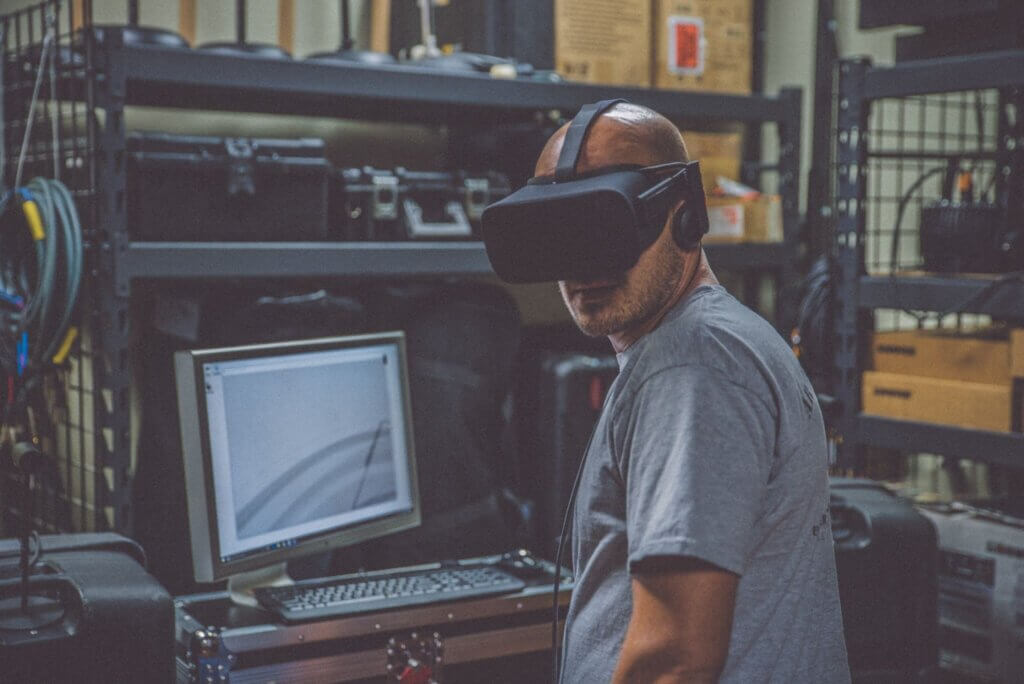In the last decade or so, augmented reality (AR) and virtual reality (VR) technologies have been more embraced by businesses than ever.
Specifically, the property sector is utilizing both these innovations to enhance consumers’ shopping experience. They are also revolutionizing the planning, designing and development of the modern housing infrastructure.
A recent study by Goldman Sachs suggests that by 2025, the AR and VR will be $80 billion markets with $2.6 billion being accounted for by real estate. Below are the top reasons why this prediction makes sense.
Contents
Better visualized advertising

Traditionally, real estate agents have advertised with 2D image models.
Unfortunately, these come with significant limitations, with the biggest being poor visualization of the items being sold. Marketing real estate products is never easy as human emotions are involved.
As such, the last thing you want is to use poor visuals that don’t tell the whole story about your products.
This is where VR and AR technologies come in handy to fix such problems.
For example, they allow consumers to virtually tour a real or simulated property before deciding whether to purchase/rent it or not.
Besides, they make it possible for property managers to remotely share high-quality, lifelike advertisements and increase their chances of closing clients.
Quicker customizations
Property managers often face difficulties closing deals especially with clients that want last-minute adjustments to their housing utilities.
Fortunately, AR/VR tech minimizes this inconvenience by facilitating remote customization of both exterior and interior elements.
For example, using virtual tours, potential buyers can identify the furnishings or colors that they don’t like. If such a change is possible, then realtors can proceed to make necessary adjustments.
Without this, consumers can only express their dislikes after visiting the property physically, which means the realtor will need to spend extra time making the necessary changes.
What’s more, if a buyer decides to cancel the deal, then the property owner is forced to eat the cost of renovations.
Effective design transformations
Virtual environments can help property managers plan construction designs more effectively. These technologies help users visualize projects in various development stages using their staging features.
For instance, VR applications allow architects to test housing features before implementing them on physical buildings. This way, it becomes easier to identify potential problems early on in the design process.
Furthermore, AR/VR technology facilitates an exchange of complex construction concepts between builders and clients. Clients can share 3D images of virtual house models, thereby making it easier for architects to visualize their ideas.
Finally, project managers in charge of public constructions can use these technologies to showcase their development plans via VR and AR media.
Affordable marketing opportunities
Real estate tech companies like Blueground, a provider of furnished apartments in Boston, are increasingly leveraging virtualization technologies to promote various types of properties.
For example, some are using VR and AR to advertise their finished houses, those still under construction, or projects that are in their design stages. Consumers can then choose an ideal space and experience it virtually before investing.
Additionally, these tech tools are helping property managers to deal with the impact of COVID-19. Virtual tours minimize face-to-face interactions, while still showing consumers true representations of marketed projects.
Cost-effective, time-saving customer experience
Buying a property is a stressful process that can involve a lot of traveling. For consumers, this means incurring travel costs, not to mention the lots of time spent visiting each site.
In some instances, they are charged to view houses on sale even if they don’t buy them.
Virtual and augmented technologies can help to reduce these hassles and risks by allowing consumers to tour homes virtually. They can also use such platforms to find and compare different places of residence by cost, as well as to make negotiations online without having to travel physically to the property manager’s office.
Improved brand recall
The human brain tends to grasp better anything that is not ordinary. Both VR and AR create amazing experiences that are easy to stick for longer. For real estate marketers and agents, this is incredibly powerful as it means users are likely to recall their brands when it’s time to buy or rent a house.
Virtualization is the future
Project virtualization is the future of real estate companies and the industry at large.
In the next few years, you can bet that most of the industry players will have VR and AR applications on their websites. These technologies align with the digitization movement which continues to revolutionize this sector.
Are you implementing any of these tech tools to boost the performance of your real estate business?
Share your feedback and experience in the comments below.



